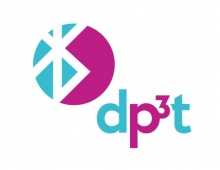
NSA Could End Phone Surveillance Program
The National Security Agency (NSA) is considering ending the infamous surveillance program that collects hundreds of millions of telephone call records and was first exposed by Edward Snowden.
According to the New York Times, the agency has not used the system in months, and the Trump administration might not ask Congress to renew its legal authority, which is set to expire at the end of the year. The newspaper's source is Luke Murry, the House minority leader’s national security adviser.
Mr. Murry referred to problems that the National Security Agency disclosed last year. “Technical irregularities” had contaminated the agency’s database with message logs it had no authority to collect, so officials purged hundreds of millions of call and text records gathered from American telecommunications firms.
NSA declined to comment on Monday.
Although some may still doubt that NSA would stay in the "dark" in terms of gathering intelligence by using such methods, terminating the program would represent a serious concession from a spy agency that once argued the collection of call metadata was vital.
Even without the program, the agency could still collect telecommunications data from abroad, which domestic surveillance laws have left largely unregulated.
The program was started by President George W. Bush’s administration as part of its intense pursuit for Qaeda conspirators in the weeks after the 2001 terrorist attacks, and a court later secretly blessed it. By usng it,
intelligence analysts gained access to bulk records of Americans’ phone calls and texts has evolved.
The USA Freedom Act approved in 2015 due to intense backlash from Snowden's revelations softened the program's power to an extent. Now instead of automatically handing over data to the agency, phone companies keep what they collect and only give investigators access to records relevant to a terrorism investigation.
While the Freedom Act cut down the number of records the NSA collected from billions per day to a few hundred million per year, its scale remained huge. The agency got access to 151 million call logs in 2016, even though it only obtained court orders for 42 targets. In 2017, it got its hands on 534 million records despite investigating 40 suspects only.





















